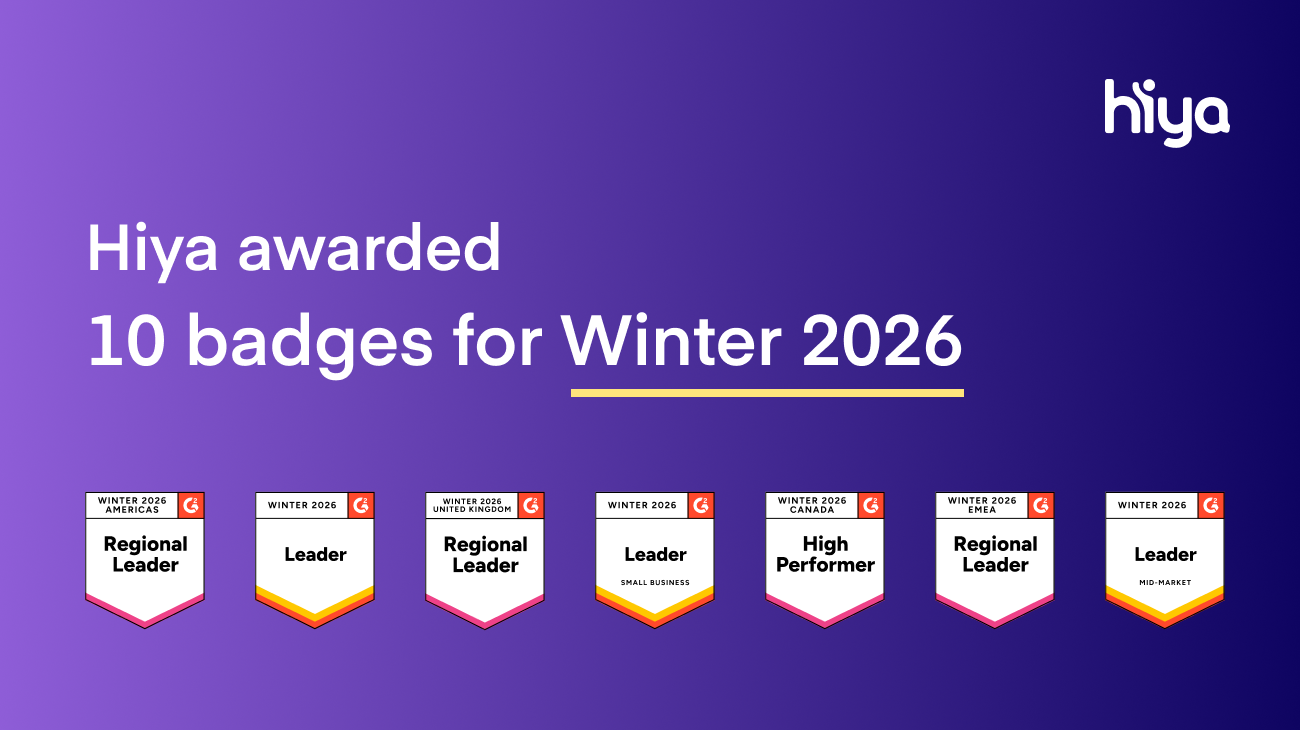.png)
A common tactic of phone scammers is to catch their victims off guard, shake them up, and cause them to take action before they have time to think things through. That’s certainly the case with police scams.
There are many variations of police scams, but commonly a fraudster will call pretending to be a police officer, claiming the call recipient has done something wrong and a warrant has been issued for their arrest. To avoid immediate arrest, the person can pay a fine over the phone.
These scams are common in countries around the world. Here are some examples of what Hiya users from around the world are reporting about police scams:
- From the UK: “Caller claims that police officers are on the way, but if I pay money over the phone they won't come.”
- From the US: “Says there is legal action against me and I need to pay them or they will send the police to arrest me.”
- From Canada: “They say I have an outstanding credit card and the police will be called.”
- From Germany: “Is pretending to be the police/Europol.”
Police scams in the UK
This past summer, the Nottinghamshire Police Department issued a warning for residents to stay vigilant against scammers pretending to be police officers. More than 20 people in the area reported receiving a call from someone claiming to be a police officer, saying he required assistance with an investigation. One victim lost £38,000 after being tricked into handing over cash and high-value jewelry, while another person lost £18,500. After the scammer ended the call, a courier was sent to the victim’s residence to pick up the jewelry and cash.
Below is a sampling of user reports from Hiya users in the UK. Consumers using Hiya Protect via their phone carrier, device manufacturer, or the Hiya mobile app can report spam calls directly from their device.
- “Taped message claiming I was in debt of 900 pounds and must pay this straight away or the police will be involved. I don't own a Visa card.”
- “HMRC recorded message. Police are announcing that they are coming to arrest me if I don't pay.”
- “Pretending to be the police and telling a story about a bank scam with my account.”
Some of the police phone scams appear to be targeting immigrants. Several Hiya users said the caller claimed to be from British Police and he spoke mainly in Russian — possibly hoping to trick Russian-speaking residents.
Police scams in the United States
In Alexandria, Virginia, the local sheriff’s office issued this warning:
“The sheriff's office wants to alert area residents to ongoing phone scams in which suspects pose as members of law enforcement to coerce victims into giving them money. This type of scam has occurred throughout the region and across the country.”
The sheriff’s office said that the callers will identify themselves as law enforcement officers and tell the victim a warrant has been issued because they missed a court date, did not show up for jury duty, have an overdue fine or something similar, and they will be arrested unless they pay right away.
The warning stated that callers often use the names of actual sheriff deputies or police officers, and they may spoof the phone number to make it look like they are calling from a local law enforcement agency.
Here are examples of what Hiya users are reporting about police phone scams in the US.
- “Stated that I had a bench warrant against me for missing a court date. Then stated that I needed to give $8,000 to have it removed.”
- “Impersonating the Philadelphia Police Department. Tried to get social security numbers.”
- “Said they were the police and that a package had come under my name from Mexico.”
Police scams in Canada
In Canada, some of the most common phone scams impersonate government officials — from agencies such as Canada Border Services, Canada Revenue Agency, or Department of Service Canada. Police agencies are also impersonated. Hiya users report fraudulent police calls purporting to be from the Royal Canadian Mounted Police, Vancouver Police Department, Ontario Province Police, Calgary Police, and more.
Here are examples of what Canadians are reporting.
- “Somebody called and said there is an illegal investment in my name and threatened that police will come for me.”
- “Pretending to be the police, who received a report of compromised banking information.”
- “Male claiming to be Chinese police saying I have a warrant in Hong Kong. Demanded I pay $16,675 via bitcoin.”
Police scams in Germany
In the summer of 2022 we wrote about a surge in Europol phone scams in Germany, which had become the #1 phone scam in the country. Europol is the European Union’s law enforcement agency. Although Europol scams have subsided since then, Germans are still getting calls from fraudsters posing as police officers. Here are some examples.
- “They want me to give all my jewelry and money to some police who will come to my house.”
- “Plays a recording posing as the police and demanding a personal conversation. Says I should press number 1.”
- “Reports to be a police inspector, and speaks of an accident, saying they have custody of a family member.”
How to fight back against police scams
If you receive a call from someone purporting to be a police officer and you think it could be legitimate, it’s best to write down the officer’s name and agency name and call back at a number you look up yourself. Do not call the phone number the officer provides to you or the number that shows up on your caller ID.
For mobile network carriers interested in protecting their subscribers, there’s Hiya Protect. It’s a complete call protection solution that protects subscribers by blocking fraud calls and labeling spam calls. It goes beyond simply identifying spam-likely phone numbers; it uses a proprietary multi-layer approach that analyzes the phone number, call characteristics, the call recipient, and even the calling enterprise’s history across all numbers used.
Individuals should first check with their mobile carrier to see if it offers call protection at the network level. If it doesn’t offer any built-in protections, individuals can download the Hiya app, which is available on the App Store for iOS and Google Play for Android.
For businesses — and law enforcement agencies — there’s Hiya’s branded caller ID, Hiya Connect. It enables businesses and agencies to display their name, logo and reason for the call on the recipient’s mobile phone. It also prevents imposters from spoofing agency phone numbers.

.jpg)

